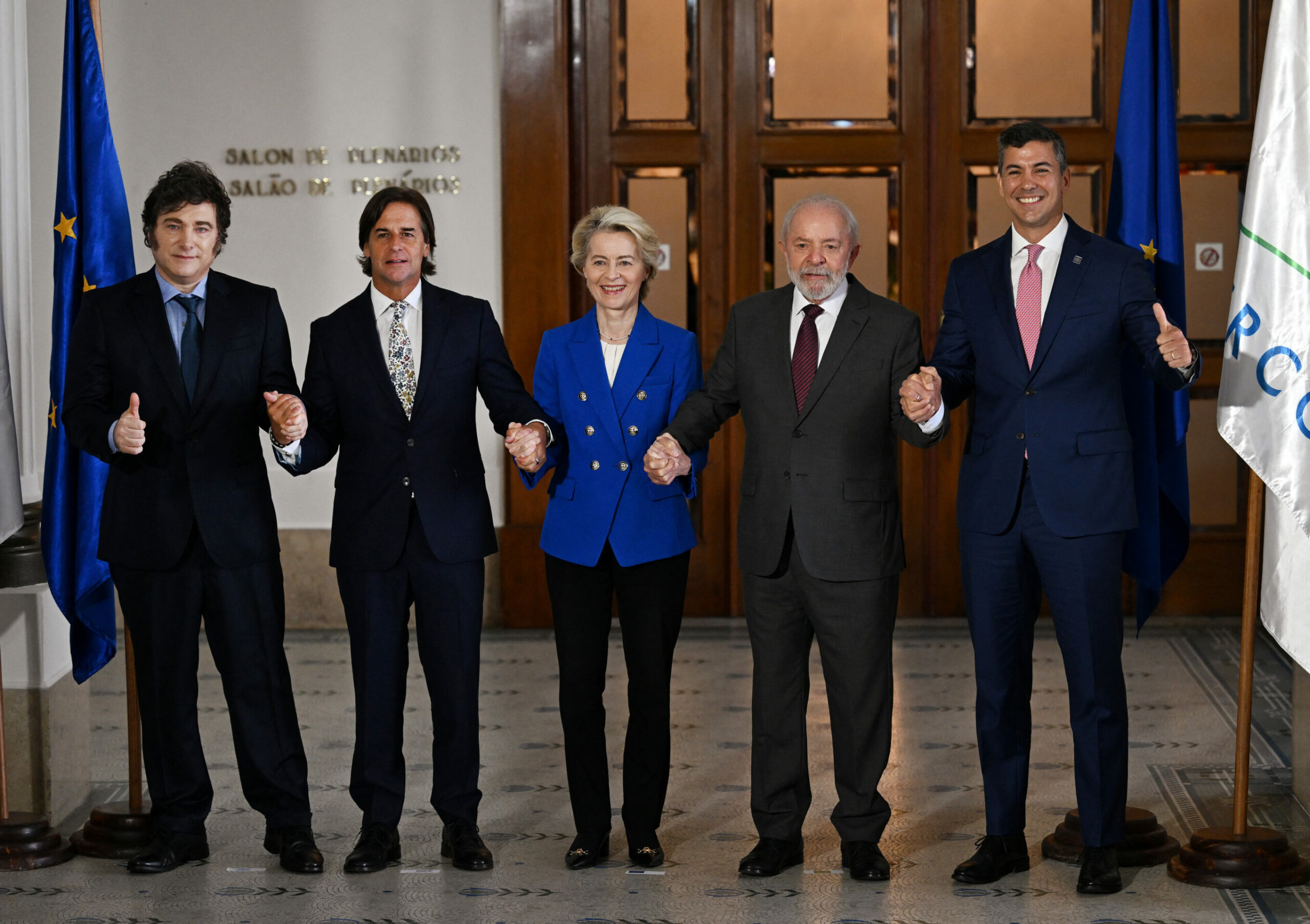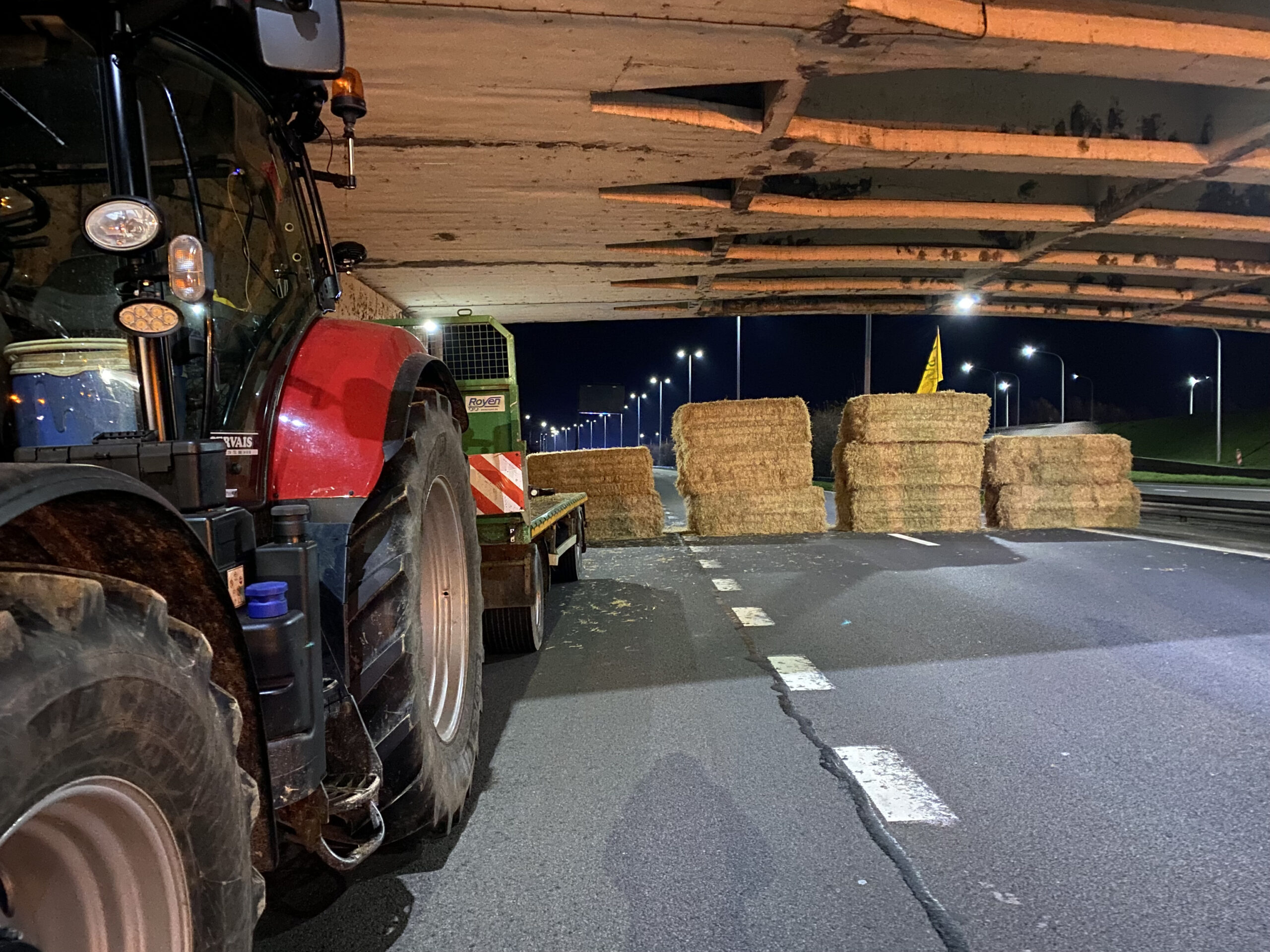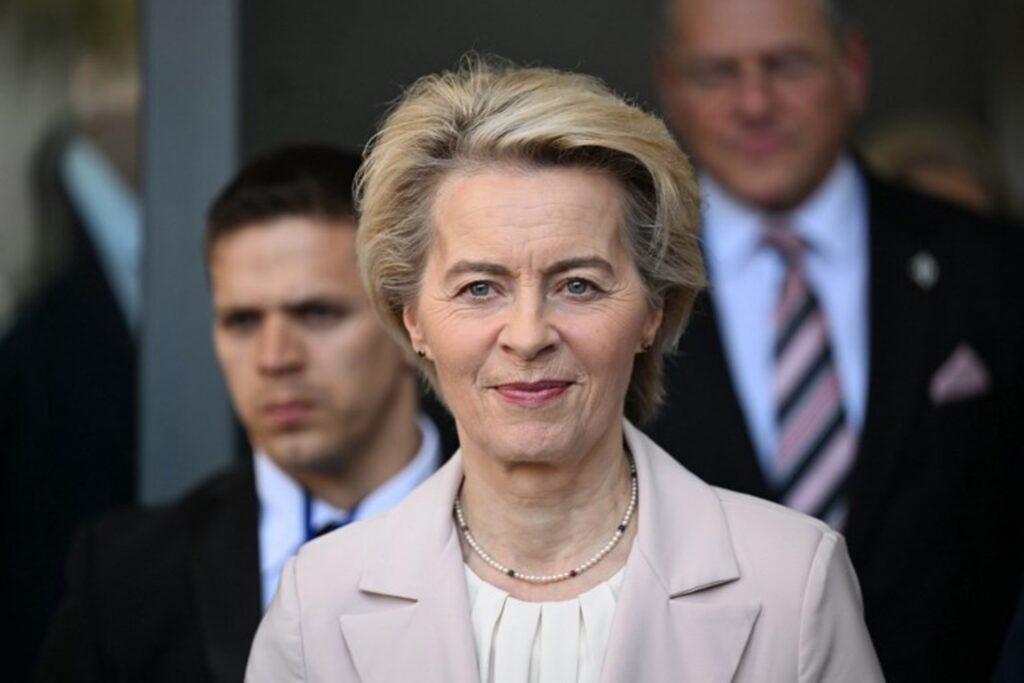A political agreement has been reached between the EU and the four founding countries of Mercosur, announced the President of the European Commission in Montevideo during the ongoing Mercosur summit.
"Today marks a truly historic milestone," said Ursula von der Leyen, describing it as an "ambitious and balanced" agreement.
The highly controversial free trade agreement will create "a market of over 700 million consumers", noted the German leader.
The four countries involved are Argentina, Brazil, Paraguay and Uruguay. While the political agreement is a crucial step, it is only the beginning of the process, a European Commission spokesperson reiterated on Friday afternoon.
The Commission negotiated on behalf of the Member States, but must still determine the legal basis for the next steps, including the ratification of the text.

Argentina's President Javier Milei, Uruguay's President Luis Lacalle Pou, European Commission President Ursula von der Leyen, Brazil's President Luiz Inacio Lula da Silva and Paraguay's President Santiago Pena pose for the family picture of the LXV Mercosur Summit in Montevideo on December 6, 2024. Credit: Belga / AFP
Protests from Parliament
The free trade deal between the EU and the South American countries has been discussed for over 20 years, often attracting vociferous protests.
Belgian Greens MEP and political group's coordinator for the Mercosur delegation committee in the European Parliament, Saskia Bricmont (Ecolo) criticised the agreement.
"A minority of players from the agri-business, automotive and chemical industries will benefit from this power grab," Bricmont said in a statement. "Clearly, the concerns expressed by European farmers, job creation and the protection of social rights, health and forests in the Mercosur countries are not priorities for the President of the European Commission."

Farmers hold a protest action against EU-Mercosur deal in Welkenraedt (Liege) on the E40 highway, on Wednesday 04 December 2024. Credit: Belga / Francoise Peiffer
The Belgian Federation of Young Farmers (FYA) reacted to the announcement by saying they were not surprised. "This is undoubtedly a negative signal for the entire European agricultural sector, but this step is by no means the end of the fight!" the federation said in a statement.
The FYA noted that both the ratification procedure and the contents of the final agreement still need to be disclosed. It promises to "tirelessly continue the fight to prevent the implementation of this harmful treaty to the agricultural sector and consumers."
This week, Belgian farmers blocked the border with France in protest at the trade deal. However, while Belgium appeared to initially support France's opposition to the deal, but later dropped out.
"Due to lack of unanimity between the regions and the Federal Government, Belgium may have to abstain. So we will not be able to support the French demand for a blocking minority, but will therefore not support the text in its current form either," Belgian Agriculture Minister David Clarinval (MR) explained.
The European Commission is able to sign the agreement on behalf of the EU, but France has been trying to put together a blocking minority. This must consist of at least four EU Member States representing more than 35% of the EU population. While Poland sides with the French, other major Member States such as Germany and Spain are in favour of the deal.
During the last farmer protests in Brussels on 13 November, Belgian farmers warned that the signing of the controversial trade deal would cause farmers' anger to "explode again", reigniting the kinds of protests seen in Brussels at the beginning of the year.

